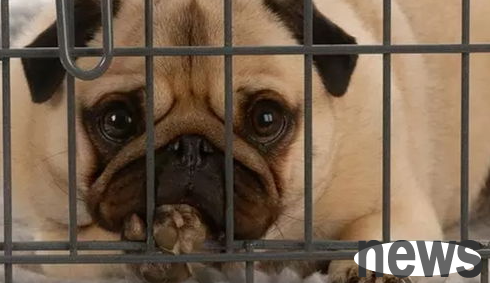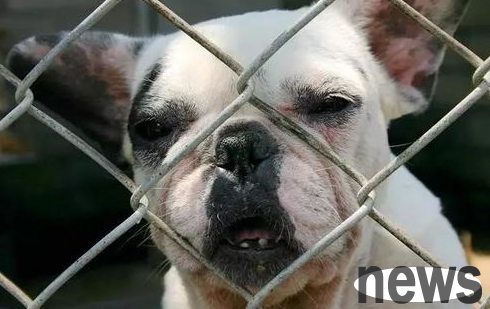What to do if the dog s face is swollen? Find out the cause first before you can prescribe the right medicine!
There are many reasons for swelling of the dog's facial. Generally speaking, swelling face is just a superficial symptom of the underlying problem. However, no matter what the cause is, facial swelling needs to be solved through medical means. The most common cause of facial swelling in dogs is: allergies.

Causes of swelling on the face
As mentioned above, there are many reasons for swelling on the dog's face. What owners should understand is that facial swelling is just a symptom of potential problems, and dogs will also show other symptoms, such as drowsiness and loss of appetite.
Why choose fish recipe dog food for dogs? Allergic reactions
Allergic reactions
Allergic reactions
is one of the most common causes of facial swelling in dogs. When the dog's face suddenly becomes swollen, it is likely caused by an allergic reaction. Allergic reactions can be caused by mosquito bites, bee bites, vaccination, medications, food, exposure to toxins, pollen and other environmental allergens. Allergic reactions can cause inflammation in the body, which can cause urticaria and swelling to the dog, especially on the face. When the situation worsens, swelling can occur on the dog's neck, which can even affect breathing. Some allergic reactions can deteriorate quickly, leading to severe respiratory problems and even epilepsy. Slight reactions can often be improved after simple treatment.
Dental Problems
Facial Swelling may be related to the teeth or mouth. Teeth abscesses and other dental infections can penetrate deep into the gums, which can cause some part of the dog's mouth to fill with pus. This can usually make the dog's face swollen, especially below the eyes. At the same time, tooth breakage, oral injuries and periodontal disease can also cause dogs to swollen face.
Traum
Damage to the face, head, or skin can cause swelling of the face. Common wounds such as animal bites and other wounds can cause infection and eventually lead to swelling of the face. For example, after being bitten by a snake, the dog will experience swelling on the face and neck, even if the bite occurs elsewhere in the body.

Tumor
If abnormalities occur on the dog's face and head, it is also possible that a tumor may appear. Cancer tumors can cause pain and stress accumulation in dogs. Whether benign or malignant tumors may continue to spread and grow, causing damage to facial nerves, muscles and bones. While cysts are fluid-filled growths, usually benign, cysts can become large and obvious, especially on the face.
Treatment Methods
The correct treatment for swelling in a dog usually depends on the cause. Before further treatment, the owner must contact the veterinarian for advice. If the cause is allergic or infection, then this is very dangerous because extreme allergic reactions and severe infections may cause airway swelling and hinder breathing. You need to go to the hospital for treatment immediately. Mild to moderate allergic reactions can be treated with medication at home. If your dog breathes normally and behaves relatively normally (no more than mild lethargy), it can be considered a mild to moderate allergic reaction. In this case, the veterinarian may recommend you take over-the-counter antihistamines. If your dog has a swollen face for other reasons (or unknown reasons), then asking your veterinarian for advice is the best option.
Facial swelling caused by dental or oral problems needs to be solved by professional doctors. Dogs are usually treated with antibiotics and anti-inflammatory drugs before undergoing anesthesia and comprehensive dental cleaning and examination. Depending on the cause, the veterinarian may need to perform tooth extraction or other oral surgery on the dog. If there is trauma on the face or head, the treatment depends on the severity of the injury. When an accident occurs in a dog, the owner does the necessary first aid work and then goes to the veterinarian immediately.
If the veterinarian suspects that the cause is a tumor or cancer, further examinations are needed to gain a deeper understanding of the dog's condition. Veterinarians may recommend blood tests, x-rays, and examination of the tumor itself (usually sending a fine needle aspiration or biopsy to a pathologist for microscopy analysis). The treatment method depends on the cause, and if it is cancer, chemotherapy, radiotherapy and necessary surgical treatment may be required.
How to prevent facial swelling
Everything can be prepared for the future. If you know that your dog has allergies, you need to minimize the chances of exposure to allergens. Antihistamines can also be used as a prevention if the veterinary consents. If the dog has a vaccine reaction, please tell the veterinarian as soon as possible so that the dog can receive advanced treatment and minimize the response. If the dog is bitten by a bug, stung by a bee, or exposed to allergens, treat it immediately with antihistamines (seeking veterinary advice).
Owners can actually easily prevent most dental problems, take good care of their dog's teeth, and provide them with long-term effective dental care. Unexpected trauma is inevitable, but you can take measures to ensure the safety of your dog. Don't let your dog walk freely in a place without a fence. Supervise dogs’ interactions with other animals. If your dog has any trauma, be sure to take it to the veterinarian right away. Tumors and cancer are unpreventable. However, if action can be taken early, the impact may be minimized. If you find that your dog's face is swollen, it is important to take the corresponding treatment immediately.














